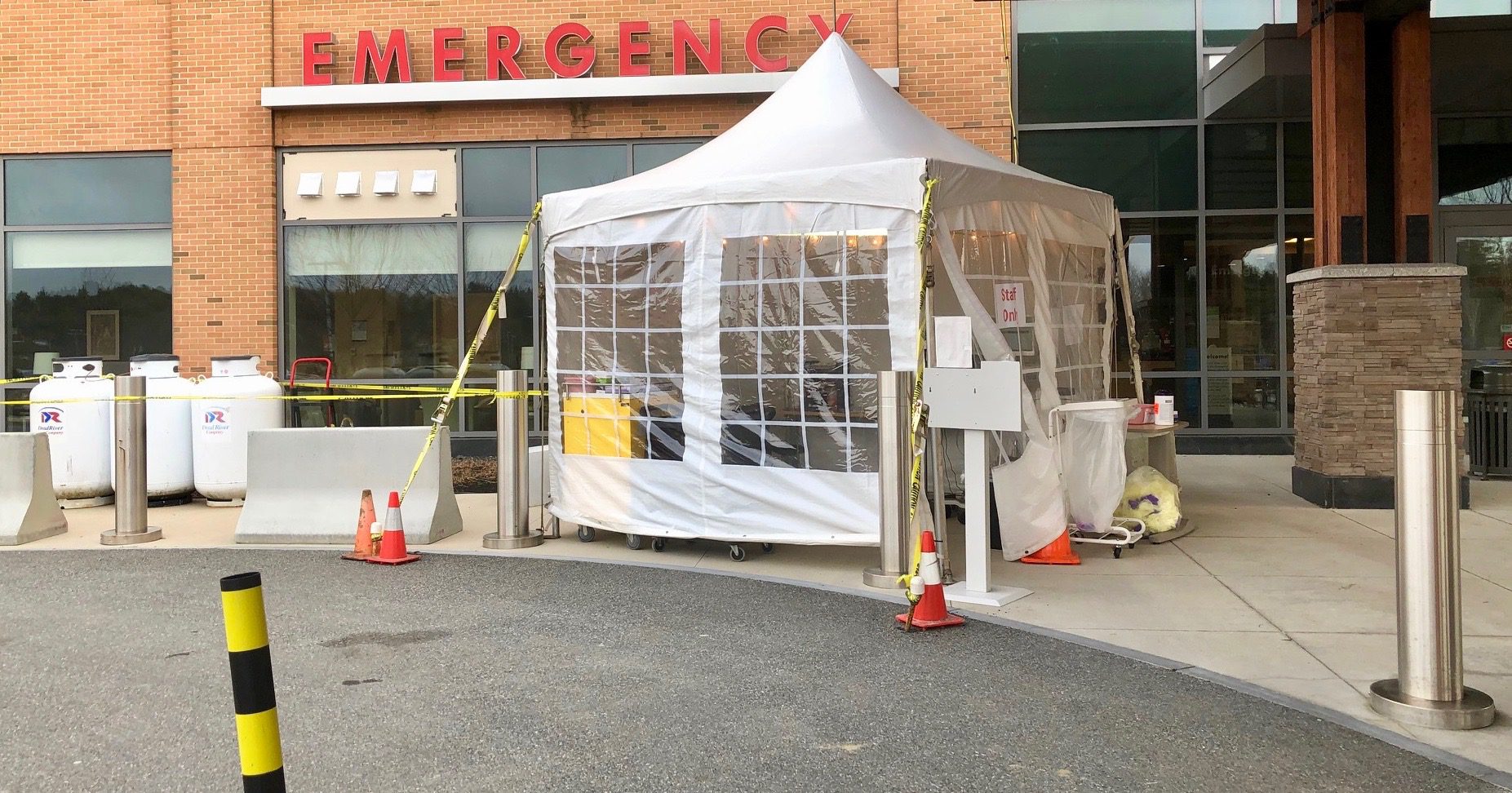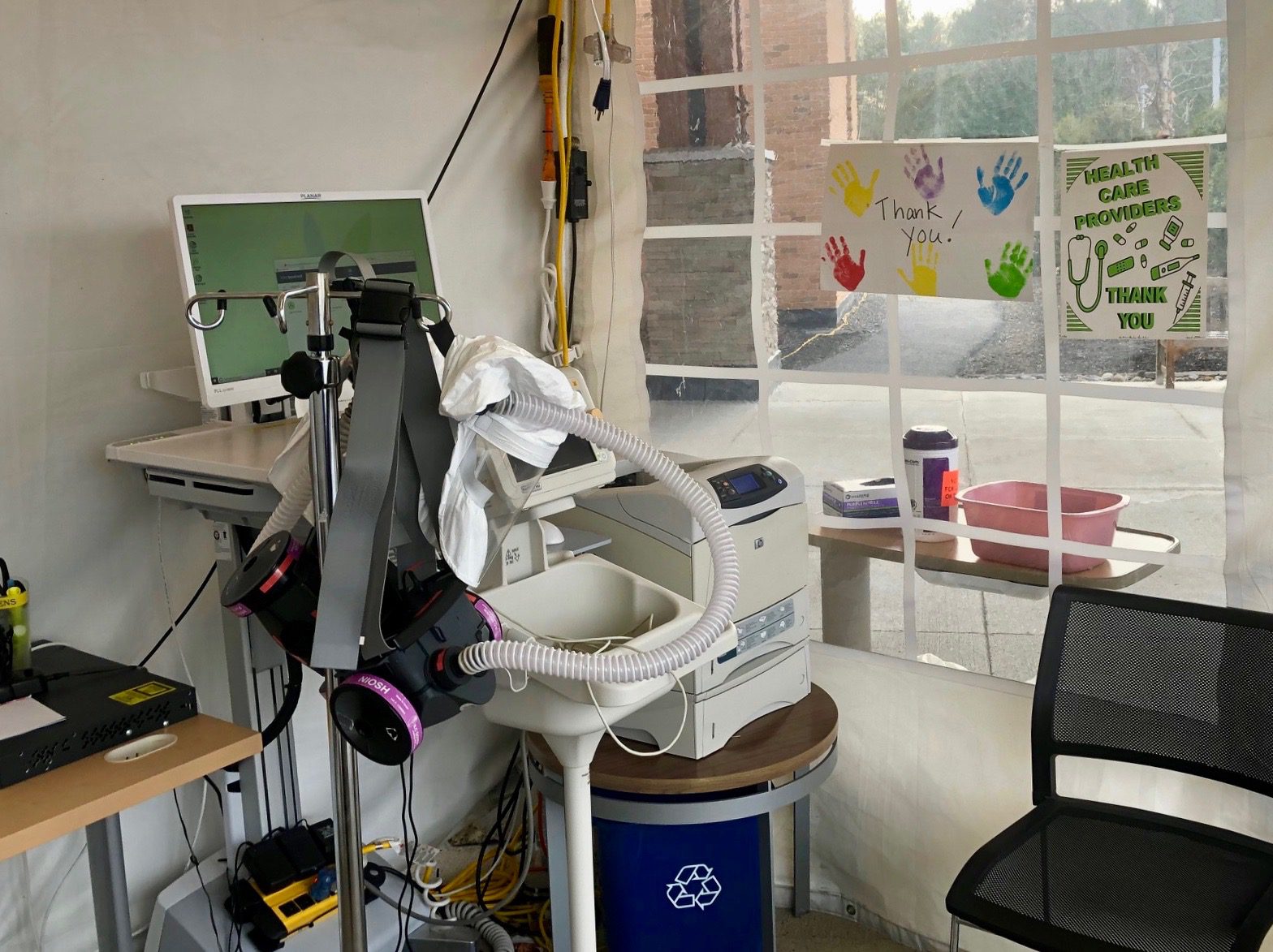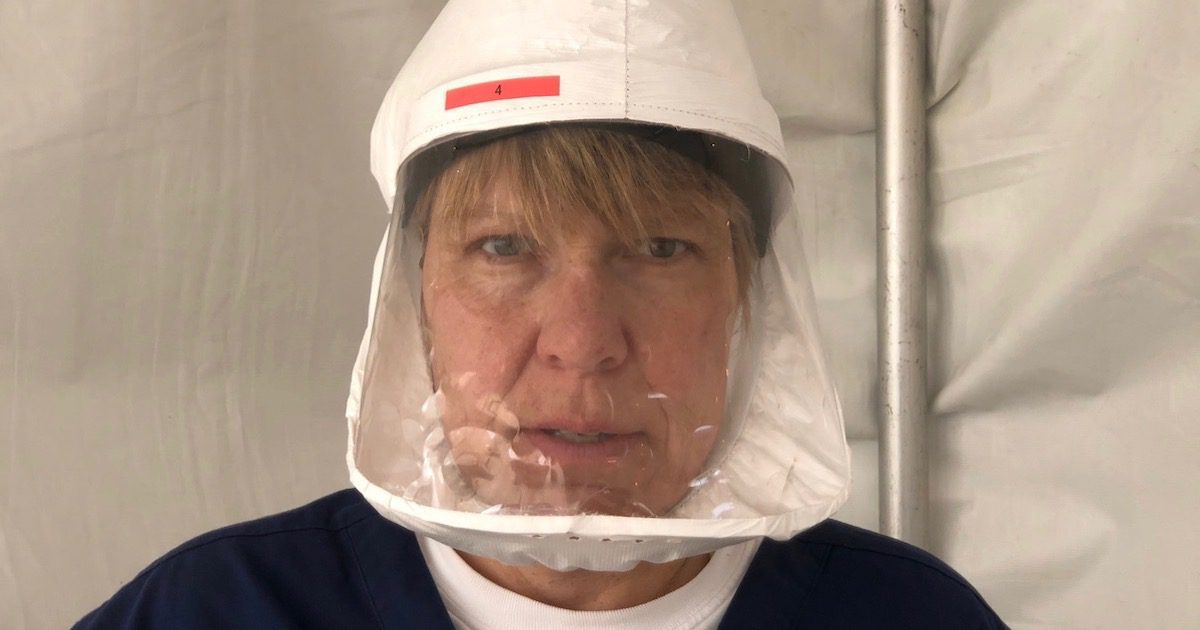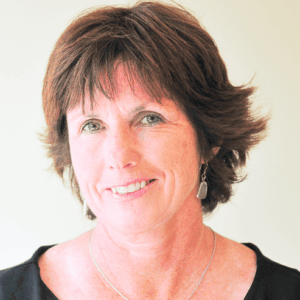Car accidents, sports field concussions, heart attacks, insulin spikes.
Whenever someone has a medical emergency in a grocery store, on a plane, on the road or during a sporting event, if Dr. Jennifer McConnell is on the scene, she’s often the first to offer help.
“It doesn’t matter where she is, she’s the first one to the rescue, to do whatever she can to help someone,” said McConnell’s daughter, Julie.
So it wasn’t a surprise when McConnell told her family, “I want to work at Augusta’s coronavirus testing and screening tent.”
McConnell’s wife, Lori Smail, was concerned about the risk to McConnell and their family from a virus that has created a pandemic, infecting more than 2 million globally and killing more than 133,000, including more than 27,000 in the United States.
“The first question I asked Jenn was, ‘How well will you be protected?’” said Smail, an elementary school principal in the Belfast region.
McConnell reassured her wife and daughters, Julie and Sarah, that she would be fully protected with a motorized respiratory mask that filtered and cleaned air.
“Once I was confident that she was safe, I was 100 percent supportive,” said Smail.
A physician for 26 years, McConnell worked as a family doctor for MaineGeneral Health for years before opening her own practice in Readfield. Known for her dry wit and unflappable character, McConnell is not shy about standing up for what she believes in — whether battling unfair insurance practices or fighting for educational support for her 18-year-old daughter, Sarah, who has autism.
So when her Maranacook Family Health Care co-owner, Dr. Lisa Clarcq, heard that MaineGeneral Medical Center needed doctors to staff the coronavirus screening tent, McConnell and Clarcq immediately volunteered.
“We both jumped two feet in,” McConnell said.
For the past month, McConnell and Clarcq have rotated shifts, working every other day from 7 a.m. to 7 p.m. On average they’ve each seen about seven patients a day. McConnell herself has screened over 200 people who feared they had coronavirus symptoms. A few of the patients McConnell evaluated had to be immediately hospitalized. Ten percent were sent to an emergency room for further evaluation.
“And some, about 5 percent, have come back several days later, sicker, and needed to be admitted,” McConnell said.
The Augusta screening and testing facility is one of about a half-dozen tents set up outside Maine hospitals.
“It’s really kind of the approach across the country to try and keep people out of the emergency rooms and keep the virus from spreading,” McConnell said. “Our goal is to keep the less acute patients out of the ER, so the doctors, nurses and respiratory therapists can take care of the really sick patients.”
Each day, after they are cleared by security and the registration nurse, patients pull up to the COVID tent, where McConnell approaches their car. To protect herself and the patient, she wears a hospital gown, gloves and a PAPR — a motorized respiratory mask with a plastic shield.
“My first line to the person is always: ‘Tell me your story,’ ” McConnell said. “So I get a sense of whether or not they have been sick or exposed to the virus.”

McConnell asks about fever, sore throat, cough, what they do for work, if they or someone they know have traveled recently. She also tests the patient’s temperature, heart rate and oxygen level.
Like other doctors working in similar tents throughout Maine and the country, McConnell uses the Centers for Disease Control and Prevention guidelines for COVID-19 testing. Due to the limited available virus tests, doctors can only test someone if they are a healthcare provider, first responder or live in long-term care facilities or congregated settings like jails or prisons.
“So I rarely test someone,” McConnell said. “Even if a 70-year old comes through with COVID symptoms, I can’t test. There’s initially a lot of surprise and fear because they know they’re high risk.”
McConnell explains to patients that regardless of whether they are tested or not, they would receive the same treatment. She tells them to quarantine at home, drink lots of fluids, eat nutritious foods and rest.
The big concern, McConnell said, is their oxygen levels.
“I tell them if they are so short of breath, if they can’t walk from their couch or their bed to the bathroom, that would be a reason to be very concerned, and to come back or call 911.”
When someone does need to be tested, McConnell swabs deep into the nasal cavity. She warns that it won’t be pleasant, but she promises to be quick.
“I have them put their head back on the car headrest, so they are less likely to jerk away. A lot of people sneeze, cough, choke, cry.”
Many of the patients McConnell treats and counsels are anxious and scared. Calming them is a priority, a skill she has honed.
“I’ve seen her trying to calm people whenever they’re scared and sick,” said McConnell’s partner, Smail. “I’ve watched her get right down and meet a patient’s eyes. She exudes comfort. It’s almost her calling to reassure people in times of panic.”
Jessie Blake, a home healthcare nurse and one of McConnell’s patients, recently came to the screening tent with a sore throat, cough and fever.

“Jenn told me to come get checked so I don’t spread it to my patients,” said Blake, who lives in Farmingdale. “When she told me she was at the testing tent, I was so proud of her. She is a phenomenal human being, putting herself out there like that in this unprecedented time.”
Though she is proud of her mother, McConnell’s daughter Julie can’t help but worry as Maine’s coronavirus infections and deaths continue to spike. Along with working 12-hour shifts at the screening tent, her mother still cares for her private practice patients and offers medical care to people in recovery.
“She’s doing a lot already, and for her to take on another thing, it’s a lot,” said Julie, a senior at Emmanuel College in Boston. “What she is doing is really great. I try to stay positive, but that fear is there. She is at a much higher risk exposing herself.”
But Julie understands that her mother cannot stand on the sidelines during a pandemic, a time when her community needs her.
“She would do anything to try and help make things better,” Julie said. “Not everybody would want to test people for the coronavirus. She’s definitely a hometown hero.”
McConnell herself tries to tamp down her fears. She has stopped watching news reports about healthcare professionals who die from the virus.
“As much as we’re fine, and know I am doing everything possible to be safe, it’s still hard to read about an ER doctor walking into work and seeing her colleague on a ventilator. It reminds me of how fast these people do take a turn for the worse, and shortness of breath hits, and the body just can’t handle it anymore.”
Like much of the medical community, McConnell is unsure how much longer she will work 12-hour shifts.
“This is a pandemic with so many questions and few answers,” McConnell said. “I don’t know when this will end, how long we’re going to be fighting this.”
But one thing is certain, the doctor who runs toward medical emergencies will continue to suit up and staff the tent where fearful patients seek comfort and care.







